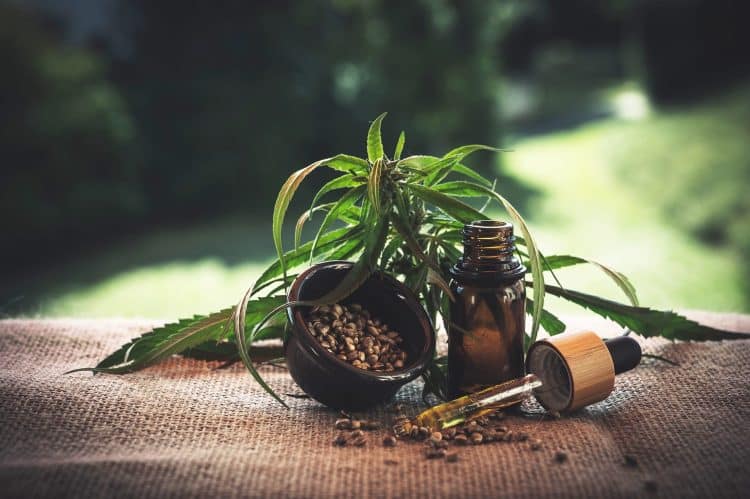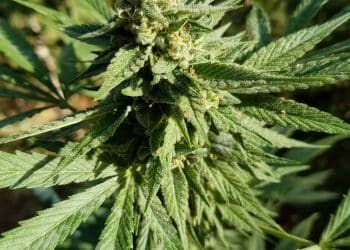Medicinal cannabis is gaining momentum the world over as a potential treatment for various ailments. The list of “qualifying conditions” approved for medicinal cannabis keeps growing as research in this area continues to reveal greater therapeutic potential. That said, the quality of medicinal cannabis has been a grey area due to a broad lack of standardization in the industry.
Medicinal cannabis products intended for oral consumption may be prepared with lipids since cannabinoids and terpenes are lipophilic. Olive oil is commonly used but other lipid sources are becoming increasingly popular. For example, medium-chain triglyceride (MCT) oil from coconut is a popular carrier oil and even extraction solvent for cannabidiol (CBD). [1] MCT oil is more readily absorbed compared to most other lipid sources. It can help tackle fat malabsorption and also provides healthy calories.
Olive Oil Versus MCT Oil
One study compared two lipid sources and their effects on cannabinoids, terpenes, and degradation products in refrigerated (4 ºC) medical cannabis oil over a 3-month period. The lipid sources were PhEur-grade olive oil (OOPH) and MCT oil from both Bedrocan® and Bediol® oils. [1]
Reprinted from: Ramella A, et al. Impact of lipid sources on quality traits of medical cannabis-based oil preparations. Molecules. 2020;25(13):2986. License: Creative Commons Attribution 4.0 International.
Bedrocan® refers to the Netherlands-based medical cannabis producer and their namesake cannabis cultivar, Bedrocan®, bred to produce high amounts of tetrahydrocannabinol (THC). It is widely used in medicinal cannabis therapy as well as for research purposes. Bediol® is a THC/CBD cannabis cultivar that is also widely utilized for medical purposes.
The researchers ground 5 grams of medical flower, decarboxylated it for 30 minutes at 125 ºC, stirred/homogenized the plant material with the oil, then performed macerated oil extraction for 30 minutes at 100 ºC. A mechanical press was used to filter the subsequent oil.
There was no noticeable change in the cannabinoid profile over the 90-day period in the OOPH or MCT oil. But when it came to the terpene concentration, the MCT oil extracted significantly more terpenes compared to olive oil. Additionally, the terpenes that were extracted using MCT oil were stable throughout the 90-day period. On the other hand, the terpenes extracted by the olive oil showed a decrease after 15 and 30 days in Bediol® and Bedrocan®, respectively. The researchers explain that “saturated lipids are more stable as regards oxidation.”
As you know, terpenes are secreted in the same resin glands (trichomes) where cannabinoids are secreted. Terpenes boost the therapeutic potential of cannabinoids through synergistic actions. [2] A chart reprinted from the open-access study is presented below reflecting alterations in terpene profiles of Bediol®.
Reprinted from: Ramella A, et al. Impact of lipid sources on quality traits of medical cannabis-based oil preparations. Molecules. 2020;25(13):2986. License: Creative Commons Attribution 4.0 International.
The researchers concluded that MCT oil was more suitable for the extraction of medical cannabis, especially when quality is of the essence. [1]
Image Source
Julia Teichmann from Pixabay
Reference
- Ramella A, et al. Impact of lipid sources on quality traits of medical cannabis-based oil preparations. Molecules. 2020;25(13):2986. Journal Impact Factor: 3.267; Times Cited: n/a
- Russo EB. Taming THC: Potential cannabis synergy and phytocannabinoid-terpenoid entourage effects. British Journal of Pharmacology. 2011;163(7):1344–1364. Journal Impact Factor: 7.73; Times Cited: 590








![NORML Praises Pennsylvania Governor’s Call to Legalize Adult-Use [Cannabis] Market, Restore Justice to Those with Past Convictions](https://extractionmagazine.com/wp-content/uploads/2020/09/3AHu68_0PDYVH8p00-75x75.jpg)



